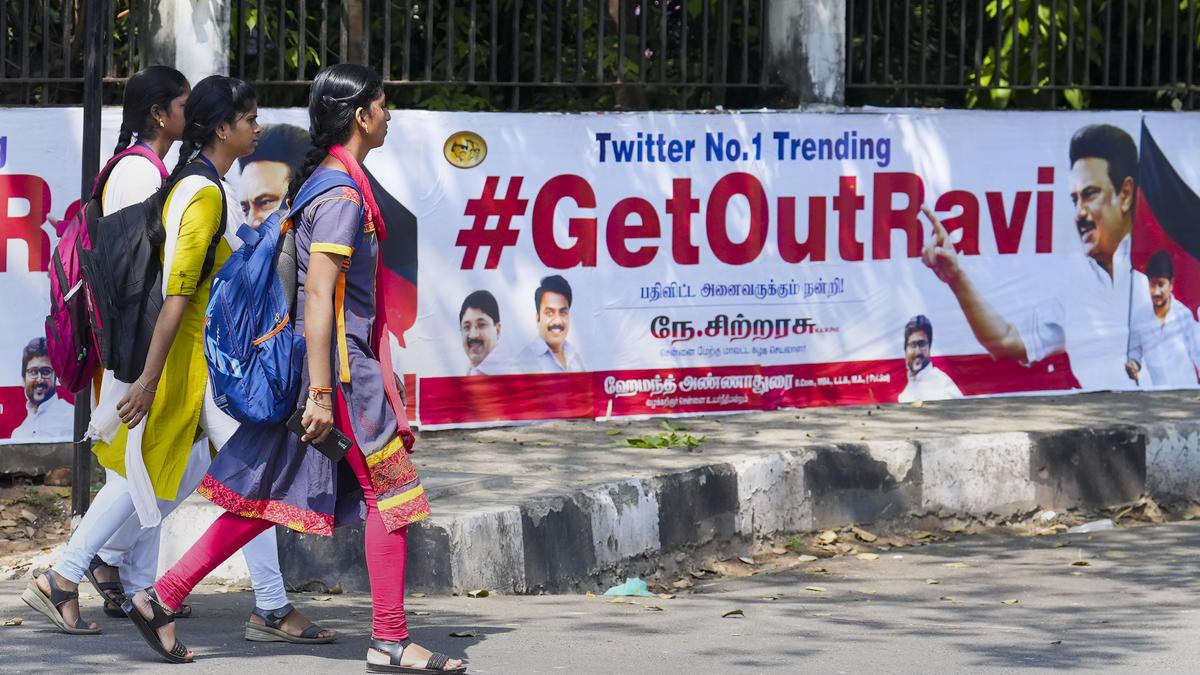Live Classes

Expectations of unsavoury events tend to fulfil themselves. The address of Tamil Nadu Governor R.N. Ravi to the Legislative Assembly to open the new year’s first session yielded the sort of drama that many foresaw. Mr. Ravi has been voicing controversial political views for quite some time. His indiscreet remarks in recent days to the effect that the State should not call itself ‘Tamil Nadu’ and that its politics was “regressive” portended tension when he came to address the House.
What was the matter?
What was unfortunate about Mr. Ravi’s approach was that this baiting of the DMK regime was carried into the legislature, of which he is an integral part. Against this backdrop, Mr. Ravi chose to skip portions of the prepared text, including a reference to the “Dravidian model of governance” and words commending the law-and-order situation in the State.
There have been instances of Governors deviating from the prepared texts, but unlike in other States, this evoked an immediate backlash from Chief Minister M.K. Stalin. The constitutional convention is that the President or the Governor should not depart from the text, as it is nothing but a statement of policy of the elected government.
Most Chief Ministers have in the past avoided confrontation despite the occasional departure from the convention. Mr. Stalin, however, chose to hand out an immediate riposte in the very presence of the Governor through a resolution that said the House record would reflect only the prepared text, and not the one with impromptu additions or deletions made during delivery by the Governor.
As soon as he realised the import of Mr. Stalin’s speech in Tamil, Mr. Ravi walked out, apparently treating the move to adopt the resolution as an affront. The Governor need not have reacted in such a manner, as there is no reason why a deviation from convention on the Governor’s part should not be met with an immediate response that was also a deviation from convention.
Confrontational attitude exposed once again
The events highlight the consequences of a confrontationist attitude on the part of constitutional functionaries. Future confrontations can be avoided if the Governor gives up his penchant for making politically loaded remarks and is heedful of the State’s political sensibilities.
What should be done?
In the longer term, the role of the Governor in the country’s constitutional scheme needs a thorough overhaul, so that incumbents in Raj Bhavan give up their sense of overlordship and focus on their core constitutional functions such as granting assent to Bills.
Constitutional Provisions Related to Governor
Efforts made by Governors to address concerns regarding partisan role